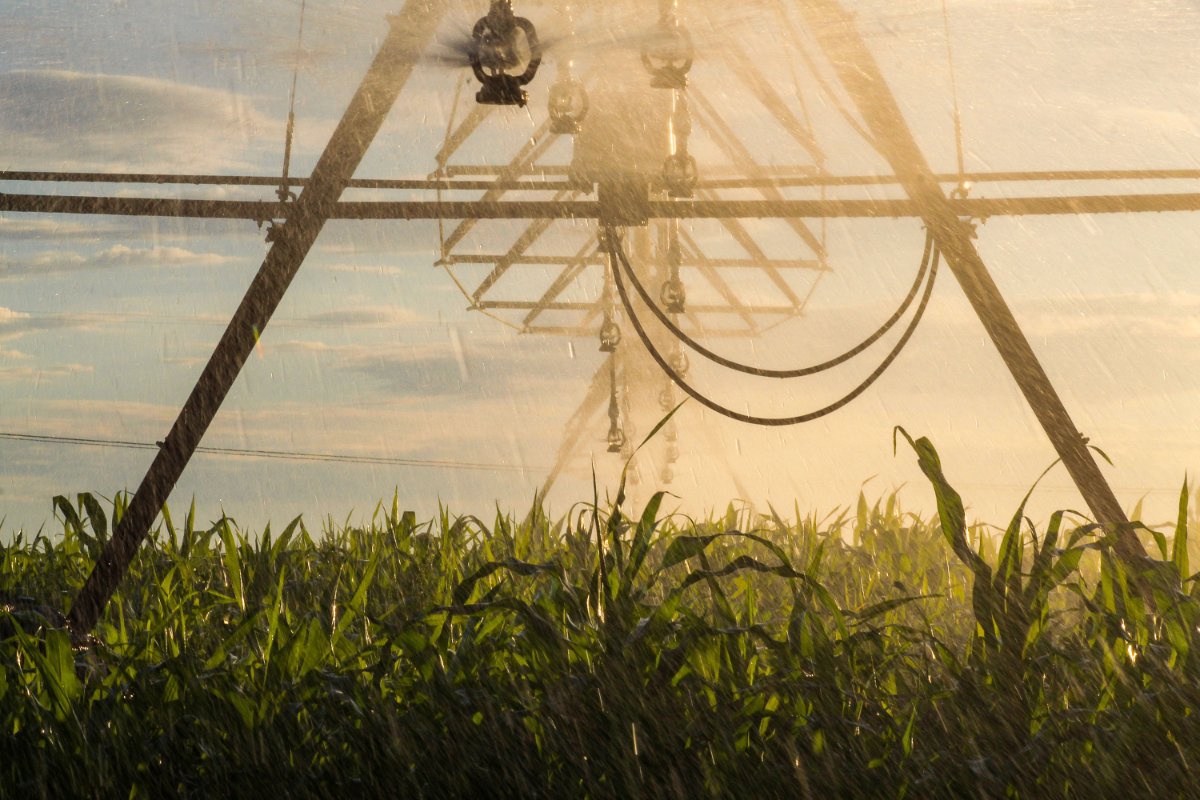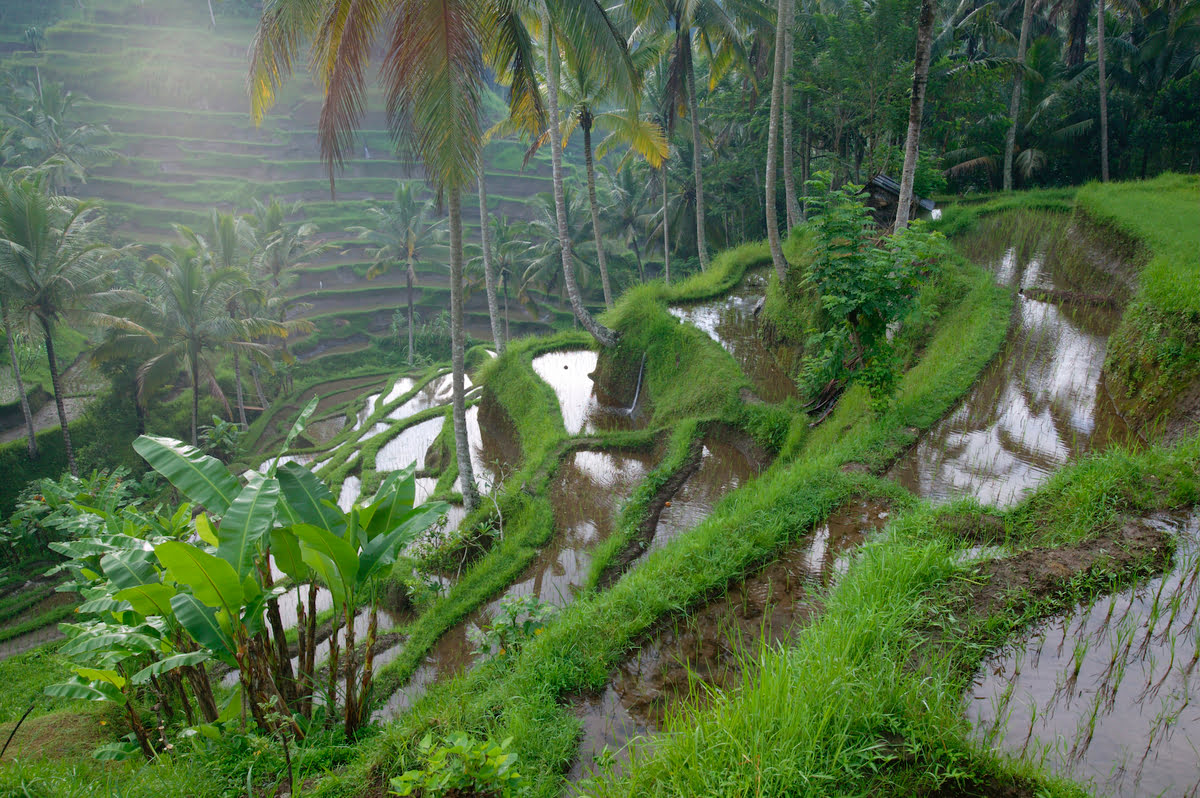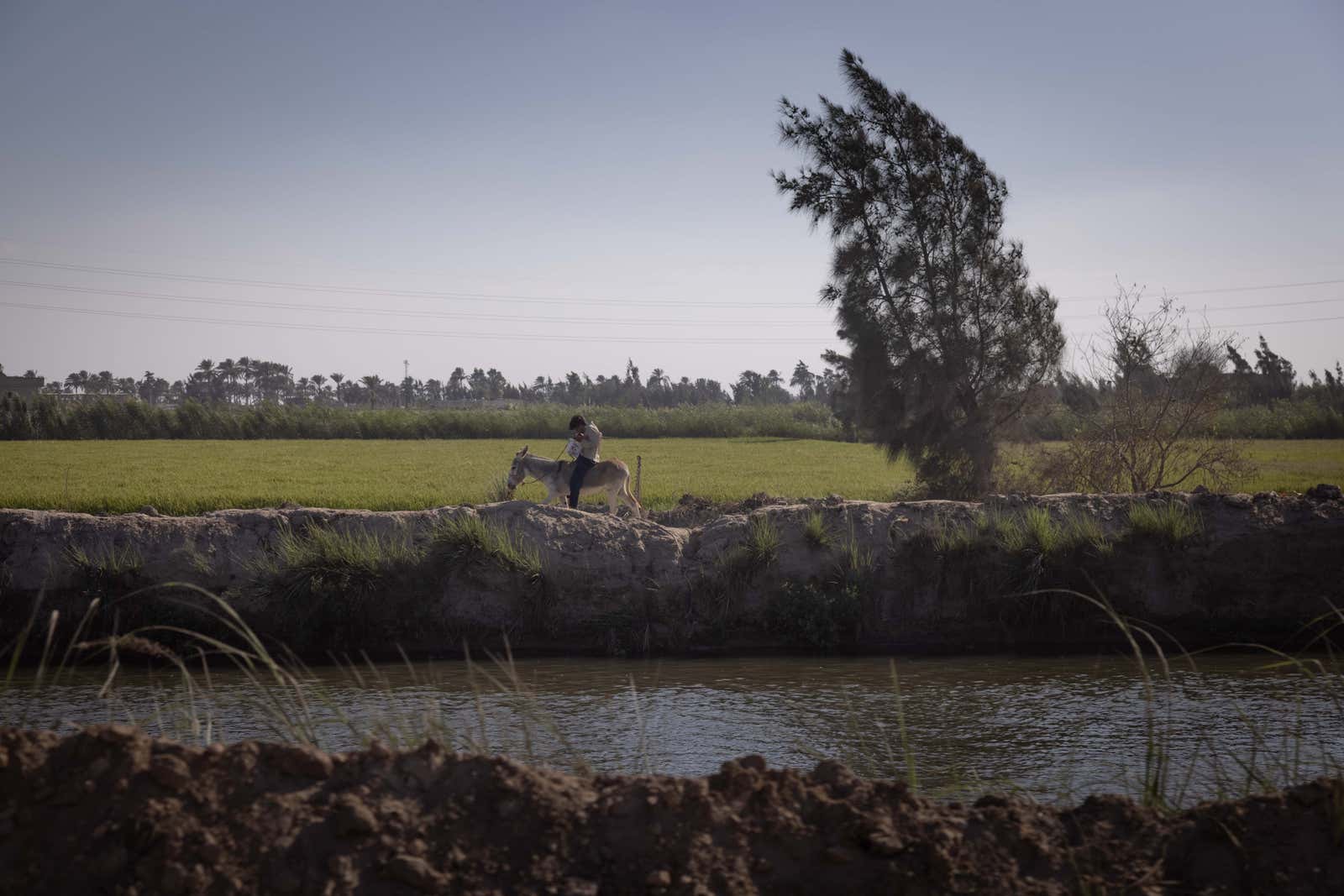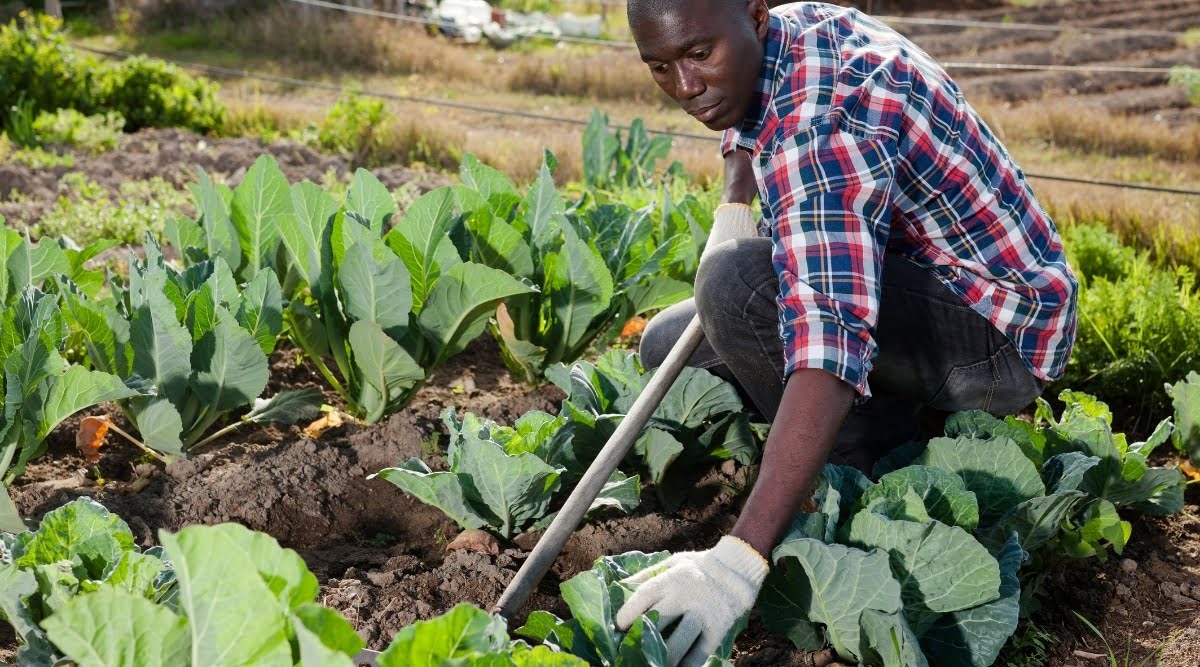Home>Gardening News and Trends>Latest News>What Did Irrigation Allow People To Accomplish
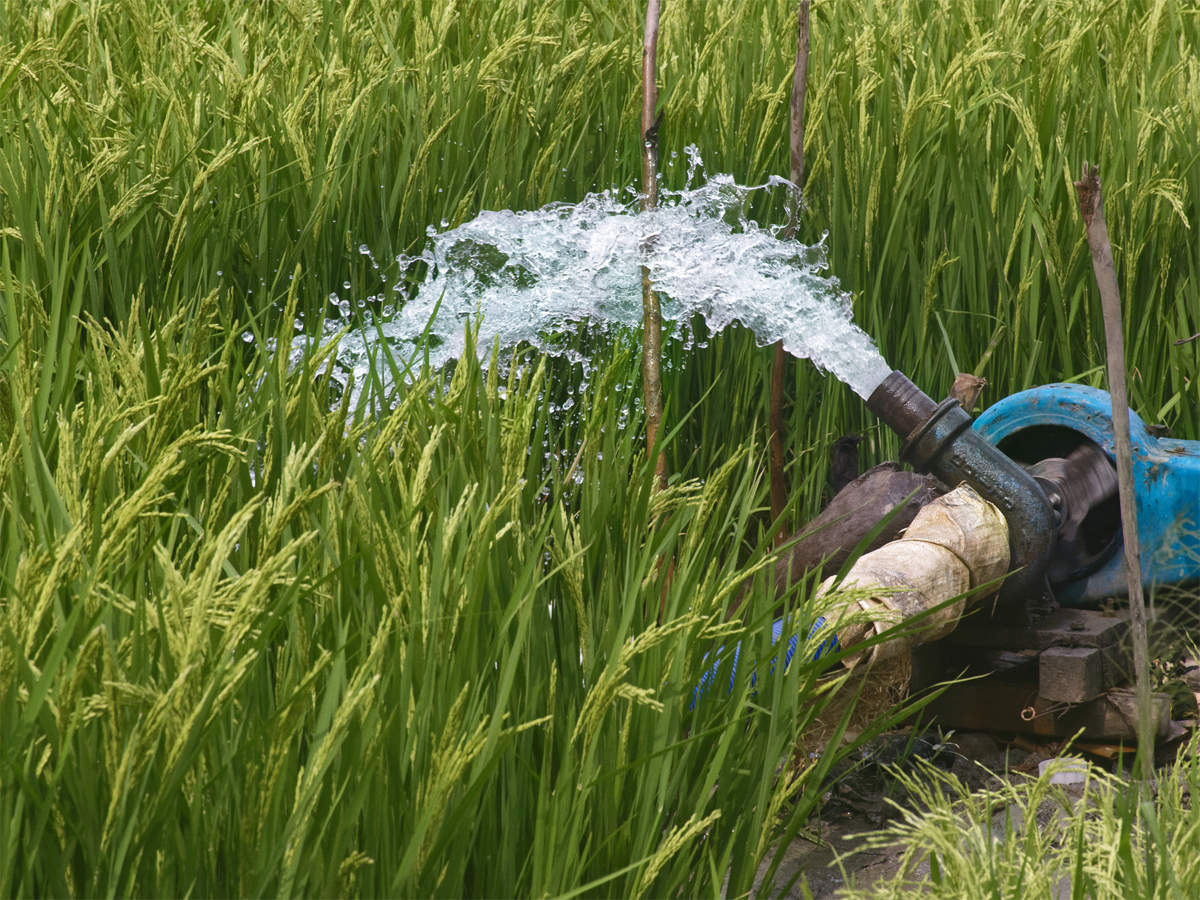

Latest News
What Did Irrigation Allow People To Accomplish
Modified: February 5, 2024
Discover the latest news about the incredible achievements made possible by irrigation. From increased crop yields to improved water management, find out how irrigation has transformed societies.
(Many of the links in this article redirect to a specific reviewed product. Your purchase of these products through affiliate links helps to generate commission for Chicagolandgardening.com, at no extra cost. Learn more)
Table of Contents
Introduction
The invention of irrigation has been a groundbreaking development in human history. It revolutionized agriculture, allowing people to harness the power of water to cultivate crops in areas that were previously arid or semi-arid. By efficiently managing water resources, irrigation systems have had a profound impact on society, enabling significant advancements in various aspects of human civilization.
The purpose of this article is to explore the accomplishments that irrigation has made possible and how it has shaped our world. By increasing agricultural productivity, facilitating settlement and population growth, driving economic development and trade, and contributing to the development of civilizations, irrigation has played a transformative role in human history.
Irrigation has allowed people to overcome the limitations of rainfall-dependent agriculture. By bringing water directly to the fields through canals, pipes, or other methods, farmers can now grow crops throughout the year. This has led to increased agricultural productivity, ensuring a stable food supply and reducing the risk of famine. Irrigation has also made it possible to cultivate crops in regions that were previously unsuitable for farming, thereby expanding arable lands and increasing overall food production.
The availability of reliable water sources has been a key factor in the establishment of permanent settlements. Irrigation systems have provided communities with a consistent and sufficient water supply for drinking, hygiene, and irrigating crops. This has allowed populations to settle in previously inhospitable areas, leading to the growth of cities and the establishment of civilization. Indeed, many ancient civilizations, such as those in Mesopotamia, Egypt, and the Indus Valley, owe their rise and prosperity to the development of sophisticated irrigation networks.
In addition to supporting agriculture and settlement, irrigation has also spurred economic development and trade. The surplus of food produced through irrigation has enabled specialization in other industries, such as art, craft, and trade. With a reliable food supply, communities were able to devote resources to non-agricultural activities, leading to the growth of commerce and the development of complex economies. As civilizations thrived and expanded, trade routes were established, facilitating the exchange of goods and ideas across vast distances.
It is worth noting that the development of irrigation systems has not come without its environmental effects. Altering the natural flow of water and diverting it for human use can have ecological consequences. These include changes in river ecosystems, soil salinization, and water scarcity downstream. Therefore, it is essential to implement sustainable and responsible irrigation practices to minimize these impacts and ensure long-term environmental balance.
Increased Agricultural Productivity
One of the most significant accomplishments that irrigation has allowed is the substantial increase in agricultural productivity. Before the advent of irrigation systems, agriculture was heavily reliant on rainfall, making it heavily susceptible to droughts and other weather fluctuations. By providing a controlled water supply, irrigation has mitigated these risks and allowed farmers to optimize crop growth and yield.
With irrigation, farmers have the ability to cultivate crops in regions that were previously unsuitable for agriculture due to lack of rainfall or irregular precipitation patterns. Arid and semi-arid regions, such as desert areas, have been transformed into fertile lands capable of sustaining food production. This expansion of arable lands has played a vital role in feeding growing populations and reducing food shortages.
Furthermore, irrigation enables consistent and regular watering for crops, ensuring optimal growth and development. Instead of relying on sporadic rainfall, farmers can provide the necessary amount of water at different stages of crop growth, leading to increased yields. This control over water supply allows for better crop planning and the possibility of multiple harvests in a year, greatly enhancing overall agricultural productivity.
In addition, irrigation systems have improved the efficiency of water use in agriculture. Water can be directly applied to the roots of crops, reducing evaporation loss and minimizing water waste. Various irrigation methods, such as drip irrigation or sprinkler systems, have been developed to ensure water is used sparingly and effectively. By maximizing water efficiency, irrigation has helped conserve water resources and mitigate the impact of water scarcity in drought-prone regions.
The increase in agricultural productivity resulting from irrigation has had significant socio-economic benefits. With a stable food supply, societies are better equipped to address food security issues and reduce the risk of famine. Surpluses in food production can be stored and traded, improving economic stability and enabling the growth of complex civilizations and trade networks. Ultimately, irrigation has been a crucial factor in the development and sustenance of human societies throughout history.
Settlement and Population Growth
The development of irrigation systems has played a pivotal role in facilitating settlement and population growth. In regions where water is scarce or unreliable, the availability of a consistent water supply through irrigation has allowed communities to establish permanent settlements and sustain larger populations.
Irrigation provides reliable access to water for various purposes, including drinking, cooking, and hygiene. This ensures the basic needs of a growing population are met, making it possible to sustain larger communities. In areas where water is scarce, such as arid and semi-arid regions, irrigation has been essential for supporting human habitation and settlement.
Moreover, the establishment of irrigation systems has allowed people to settle in regions that were previously inhospitable for human habitation. By bringing water directly to the fields, arid lands have been transformed into fertile farmlands capable of supporting agriculture. This has led to the expansion of settlement into previously untamed territories, fostering the growth of new towns and cities.
The availability of water through irrigation has also led to the development of more complex societies and urban centers. With a reliable water supply, communities have been able to engage in activities beyond subsistence farming. Specialization in crafts, trade, and governance has become possible, leading to the growth of cities and the emergence of advanced civilizations.
Historically, many renowned civilizations owe their existence and prosperity to the development of sophisticated irrigation systems. For example, ancient Egypt’s civilization flourished along the banks of the Nile River, where irrigation was used to harness the fertile floodplain and support agricultural activities. Similarly, the cities of Mesopotamia, located between the Euphrates and Tigris rivers, thrived thanks to an intricate network of canals and irrigation systems.
Overall, irrigation has been instrumental in facilitating settlement and accommodating population growth in areas that would otherwise be unable to support human habitation. By providing a consistent and dependable water supply, irrigation has transformed barren lands into flourishing communities, setting the stage for the expansion and advancement of human civilizations throughout history.
Economic Development and Trade
Irrigation systems have not only revolutionized agriculture and settlement but have also played a crucial role in driving economic development and promoting trade. The ability to harness water for irrigation has led to increased agricultural productivity, which in turn has created surpluses of food and other agricultural products. These surpluses have paved the way for economic growth and the development of complex economies.
With a stable food supply ensured through irrigation, societies have been able to support a larger population. As a result, individuals within these communities can specialize in various non-agricultural activities such as crafts, trade, and manufacturing. The surplus produced through irrigation allows for the development of a market economy, where goods and services are exchanged, leading to economic development.
Furthermore, irrigation systems have facilitated the growth of trade and commerce. As agricultural productivity increased, communities were able to produce surplus crops and goods that could be traded with neighboring regions. Trade routes and networks emerged, promoting cultural exchange, technological diffusion, and economic interdependence.
Irrigation-enabled agricultural surpluses have also played a significant role in the rise of cities and urban centers. The reliable food supply resulting from irrigation has attracted people from rural areas to settle in urban areas, where they can engage in trade and other economic activities. Cities became hubs of commerce, where goods from different parts of the region or even distant lands could be exchanged and sold.
The availability of water through irrigation has also given rise to the cultivation of cash crops and the diversification of agricultural production. Communities could grow crops suitable for trade and export, expanding their economic potential. This has allowed for the generation of income, increased wealth, and the development of regional and international trade networks.
In sum, irrigation has acted as a catalyst for economic development by increasing agricultural productivity, supporting the growth of cities, and fostering trade and commerce. The surplus food production made possible by irrigation systems has provided the foundation for the development of complex economies, stimulating trade networks and enabling societies to flourish and prosper.
Development of Civilizations
The development of sophisticated irrigation systems has played a crucial role in shaping and advancing human civilizations throughout history. Irrigation has enabled societies to flourish in arid and semi-arid regions by providing a reliable water supply for agriculture, thus supporting the growth of complex civilizations.
One of the key factors contributing to the rise of ancient civilizations was their ability to control water resources through irrigation. The construction of canals, dikes, and reservoirs allowed for the efficient distribution and management of water for irrigation purposes. This control over water sources significantly increased agricultural yields, leading to surplus food production, which was essential for sustaining larger populations and driving social and cultural progress.
In regions such as Mesopotamia, Egypt, the Indus Valley, and Mesoamerica, the development of extensive irrigation networks was instrumental in the establishment and prosperity of ancient civilizations. These civilizations harnessed the power of water to transform barren landscapes into fertile lands capable of supporting agriculture on a large scale.
The availability of water through irrigation not only provided sustenance but also encouraged settlement and urbanization. People flocked to these fertile regions, leading to the emergence of thriving cities and the development of advanced political, social, and economic systems. With reliable access to water, civilizations were able to support a growing population, foster specialized labor, and engage in sophisticated trade networks.
The development of irrigation systems also sparked technological advancements and engineering feats. Ancient civilizations built complex irrigation infrastructure, including aqueducts, canals, and dams, showcasing their knowledge of hydraulics and engineering. The construction and maintenance of these systems required careful planning and coordination, which further demonstrated the expertise and organization of these ancient societies.
Furthermore, the advancements in agriculture made possible by irrigation systems allowed civilizations to sustain themselves and dedicate resources to other areas of intellectual and cultural development. With a stable food supply, civilizations were able to focus on artistic expression, literature, philosophy, and scientific inquiry. Irrigation, therefore, not only provided the means for physical sustenance but also acted as a catalyst for the intellectual and cultural growth of civilizations.
Overall, the development of irrigation systems has been imperative in the formation and advancement of human civilizations. By providing a reliable water supply for agriculture, irrigation supported the growth of populations, the establishment of cities, and facilitated technological and cultural progress. The impact of irrigation on civilization is evident in the lasting legacy of ancient empires and the continued reliance on irrigation techniques in modern agriculture.
Environmental Effects
While irrigation has brought about remarkable advancements in agriculture and the development of civilizations, it is important to acknowledge its environmental effects. Altering natural water flows and diverting water for human use can have significant consequences for ecosystems and the environment.
One of the environmental effects of irrigation is the alteration of river ecosystems. When water is diverted from rivers for irrigation purposes, it can disrupt the natural flow of water and impact the habitats of plants and animals that rely on those ecosystems. Changes in water availability and quality can lead to the loss of biodiversity and negatively impact the overall health of river ecosystems.
Another consequence of irrigation is the potential for soil salinization. When water is applied to the soil through irrigation, it can result in the accumulation of salts over time. This process, known as salinization, can render the soil unfit for agriculture and can have long-term detrimental effects on crop growth. Managing irrigation systems properly, such as implementing drainage practices and using quality irrigation water, can help mitigate these effects.
Additionally, irrigation can contribute to water scarcity downstream. When large quantities of water are diverted for irrigation, the availability of water can be reduced downstream, affecting the ecosystems and communities that rely on those water sources. Balancing the needs of agriculture with the need to preserve natural waterways and ensure water availability for other purposes is crucial in minimizing the negative environmental impacts of irrigation.
Water and energy consumption is another environmental consideration. Irrigation systems often require significant amounts of water and energy to operate, which can contribute to increased water usage and greenhouse gas emissions. Implementing sustainable irrigation practices, such as using precision and efficient irrigation methods, can help reduce water and energy consumption and mitigate the environmental impact.
It is essential to recognize the potential environmental consequences of irrigation and take measures to address and mitigate these effects. This can involve employing sustainable irrigation techniques, implementing water conservation measures, promoting ecosystem conservation, and prioritizing the overall health and balance of natural water systems. By managing irrigation practices responsibly, we can continue to benefit from the advantages of irrigation while minimizing the negative impacts on the environment.
Conclusion
The invention and widespread use of irrigation systems have had transformative impacts on human societies, enabling remarkable achievements in agriculture, settlement, economic development, and the flourishing of civilizations. By harnessing the power of water, irrigation has allowed people to overcome the limitations of rainfall-dependent agriculture, increasing productivity and expanding arable lands. This has provided a stable food supply, contributed to population growth, and fostered the development of complex societies.
Through irrigation, communities have been able to settle in regions previously unsuitable for habitation, transforming arid landscapes into fertile farmland. Reliable access to water has facilitated the growth of cities and urban centers, where trade, specialization, and cultural exchange flourished. The surplus food production resulting from irrigation has enabled economic development, supporting the advancement of complex economies and international trade networks.
However, it is important to acknowledge the environmental implications of irrigation. Changes in water flows, soil salinization, and water scarcity downstream are among the environmental effects associated with irrigation. It is crucial to implement sustainable practices that mitigate these impacts and ensure the long-term health and balance of ecosystems and natural water systems.
In conclusion, the development and utilization of irrigation systems have been instrumental in shaping human history and fostering progress in various fields. From increased agricultural productivity and population growth to economic development and the rise of civilizations, irrigation has been a cornerstone of human advancement. By recognizing and addressing the environmental consequences associated with irrigation, we can continue to benefit from its advantages while preserving the delicate balance of our planet’s ecosystems.
